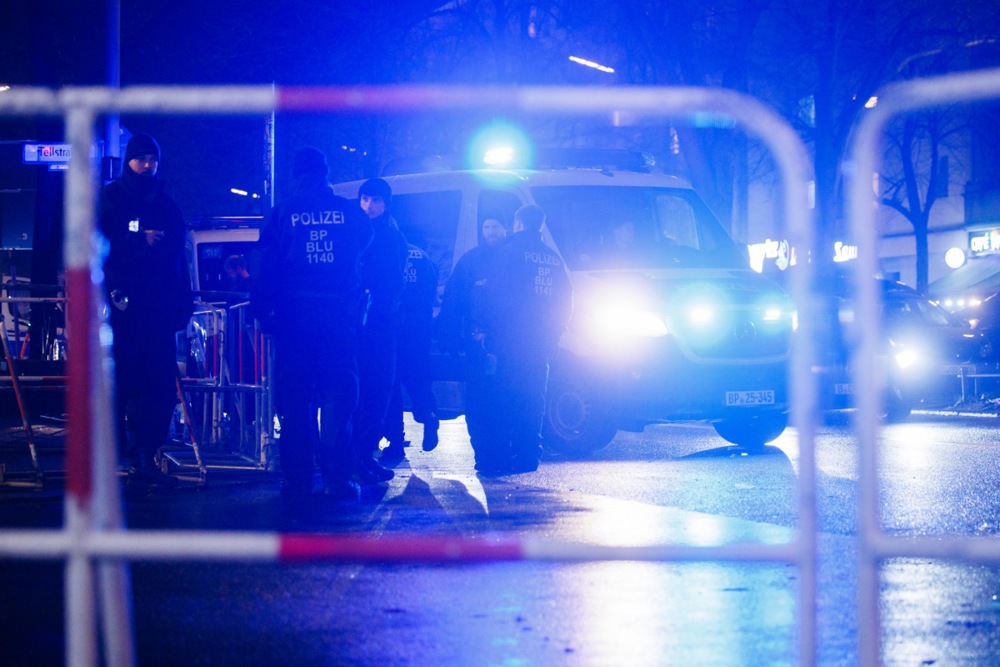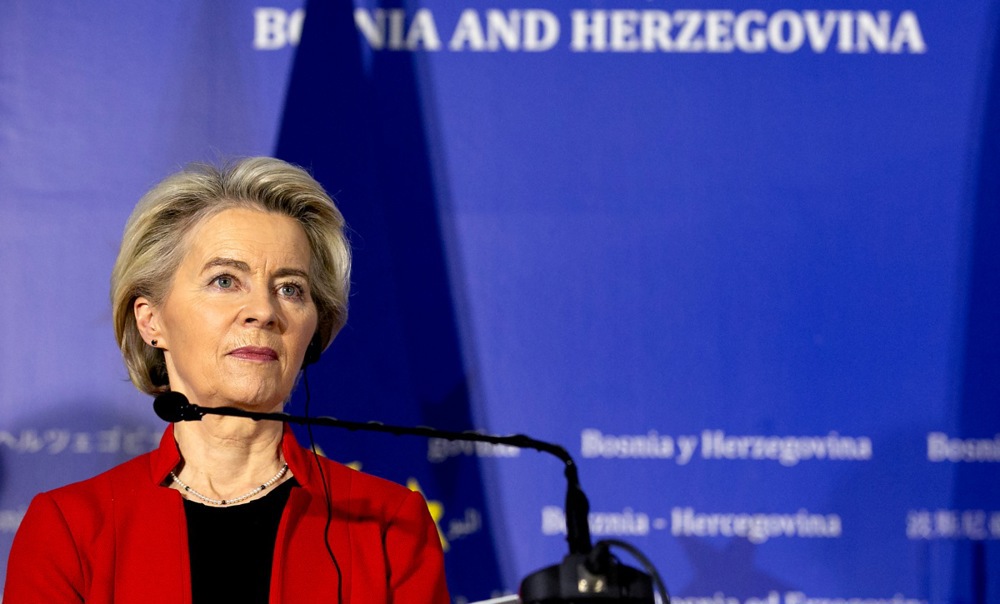As Denmark heads to vote in the European Parliament elections June, the country’s Social Democrats — with Prime Minister Mette Frederiksen at the helm — govern in a stately grand coalition, alongside the centrist Moderates and the centre-right, pro-free-market Venstre party.
Having won slightly over half of the national vote in 2022 between them, this coming June seems likely to bring with it a shift in the country’s politics.
Over the last number of months, these three parties have together shed over 10 points, with the coalition now enjoying under 40 per cent of the vote nationally according to polling in March.
The opposition parties of the Left and Right have seen a similar-sized rise, and are now polling at around 59 per cent.
Having lost out in 2022, these parties are now well set to make up ground in June’s European vote, with a possible low turnout also likely to boost their fortunes.
“The political interests of Danes relate to [the Danish] Parliament, municipal council and the European Parliament … in that order,” Nicolas Foss, a professor at the Copenhagen Business School, told Brussels Signal.
Of those groups currently in opposition, it looks set to be a good summer for the libertarian Liberal Alliance. A party opposed to further European integration, the group has seen its support nearly double since the last election, growing from 7.9 per cent in 2022 to nearly 14 per cent in March.
It has also just picked up an extra MP too, with the January 10 dissolution of the populist New Right party seeing its now-former leader, Pernille Vermund, jumping ship to the libertarians.
Denmark allows electoral alliances for EU elections. That lets voters register “first choice” preferences for smaller parties, while transferring their votes to bigger parties if smaller ones do not get elected.
On the centre-right, Venstre and the Moderates (both in Government) and the Social Liberals (which is not) formed such a pact back in January.
The Liberal Alliance is also in on the action, setting up a similar deal with the Conservatives in October last year. A few months before that, the left-wing Social Democrats (in Government) sealed its grouping with the Green Left and The Alternative.
Denmark’s Prime Minister Mette Frederiksen has announced her Government will begin drafting women alongside men to its armed forces. https://t.co/bMSzFVDAgo
— Brussels Signal (@brusselssignal) March 15, 2024
Like much of the European Union, Denmark has seen some of its more mainstream parties shift to the right on a number of key social issues.
Most controversially, Frederiksen’s Social Democrats are seen as having combined a left-of-centre view on economic issues with a conservative stance on immigration.
Some are even floating the idea that the Danish PM could challenge the centre-right European People’s Party for the European Council presidency on behalf of the Socialist and Democrats (S&D) group.
For some MEPs that is controversial, given her hard line on immigration, although with such a stance making advances in June, such views could end up being seen as a net positive.
On the flip side, if S&D decides to throw its weight behind their centre-right rivals, perhaps even helping them European Parliament presidency to boot, then the right may in turn help the Danish centre-left land one of their own a top job on the Council.
A Danish Government ban on Quran-burning protests would not represent any kind of assault on freedom of speech, Prime Minister Mette Frederiksen has claimed. https://t.co/wuUhtvK34g
— Brussels Signal (@brusselssignal) August 4, 2023
On current polling, S&D stands to pick up one extra Danish MEP in June, going from three to four, according to the European Council on Foreign Relations.
The Liberal Alliance and the ID group-affiliated Denmark Democrats both stand to be the election’s big winners, likely picking up two seats each (from none today).
Both parties sharply criticised the governing coalition in December for outlawing Quran burning. Danish Democrats’ leader Inger Støjberg called the “restriction on freedom of speech” one that was not “determined by us” but rather “dictated from the outside”.
Also, look out for Venstre to be a big loser — which could see its four MEPs dwindle to just one.
With June's European Parliament elections beckoning, please fully enjoy this unfortunately withdrawn 2014 Danish get-out-the-vote advert: starring Voteman, who after a busy morning of group sex, goes off to punch non-voters in the face. pic.twitter.com/VMKhycjnRd
— Pádraig Belton (@PadraigBelton) February 27, 2024
An October poll by the Voxmeter institute showed the party suffering its worst polling result ever, at 8.5 per cent. The party won 23.5 per cent of the vote as recently as the 2019 European elections.
Jakob Ellemann-Jensen stepped down as party leader and Danish Deputy Prime Minister in October over the party’s poor results. (He took “sick leave for stress in February”, notes Oxford Analytica.)
There is — as yet — no word as to whether Denmark will see a reprise of its controversial 2014 advert Voteman – a muscly superhero who, after a busy morning of group sex with five women, raced off to punch non-voters in the face.
(Denmark’s then-parliament withdrew the advert after several party leaders criticised it.)
Joachim Gauck said there is a loss of control at the borders and praised the Danish approach as an example of how the situation should be handled. https://t.co/bMpWF8YV0V
— Brussels Signal (@brusselssignal) September 19, 2023





The EU’s ‘hate speech’ laws are an attack on free speech itself: This year’s European elections may be the last chance to defend our rights